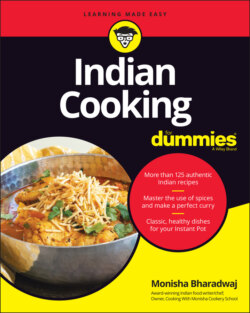Читать книгу Indian Cooking For Dummies - Monisha Bharadwaj - Страница 36
A BRIEF HISTORY OF VEGETARIANISM IN INDIA
ОглавлениеIndia’s association with vegetarianism goes back almost two millennia. Thousands of years ago, animals were hunted for food and meat was eaten regularly. The anti-meat sentiment began to be felt with the rise of Buddhism and Jainism, the founders of which, the Buddha and Lord Mahavira, respectively, taught their followers the doctrines of nonviolence. As more and more people began to convert to these belief systems, Hindu priests, fearing that a great number of their people would convert from Hinduism to these more peaceful ways, also began preaching against the killing of animals. They prescribed a vegetarian diet as being more worthy than the older ideas of animal sacrifice.
Today, almost 85 percent of India follows Hinduism, and some of these people are vegetarian (most of the time for religious reasons). However, not all Hindus are vegetarian — caste and community also affect this choice. Most nonvegetarians eat meat or fish perhaps once or twice a week because it can be expensive. This choice is not seen as a difficult one because of the huge array of vegetables, lentils, beans, and dairy products available.
Modern trade, as well as human migration, has meant that Indian vegetarian food has become more popular and available all over the world.
